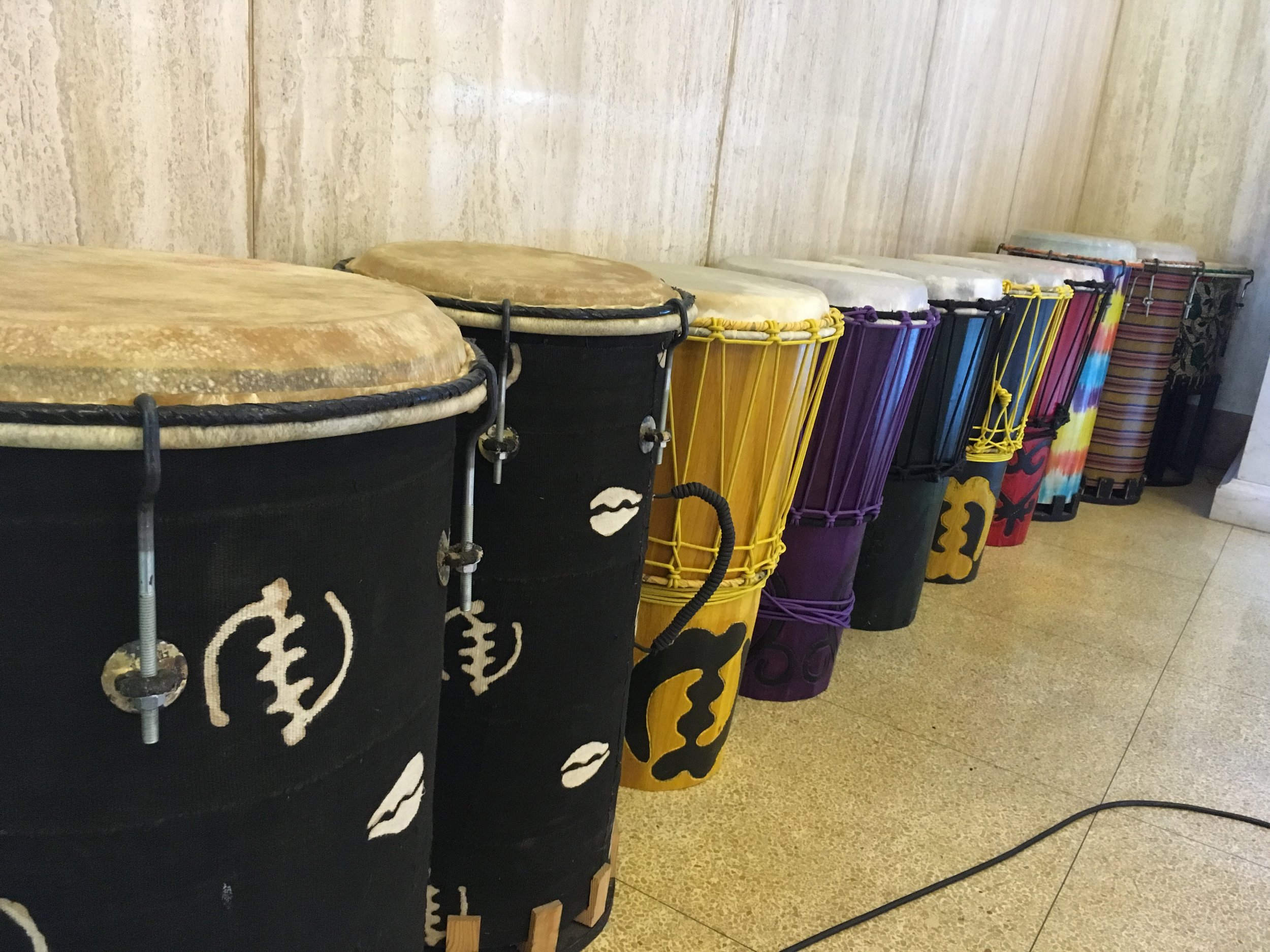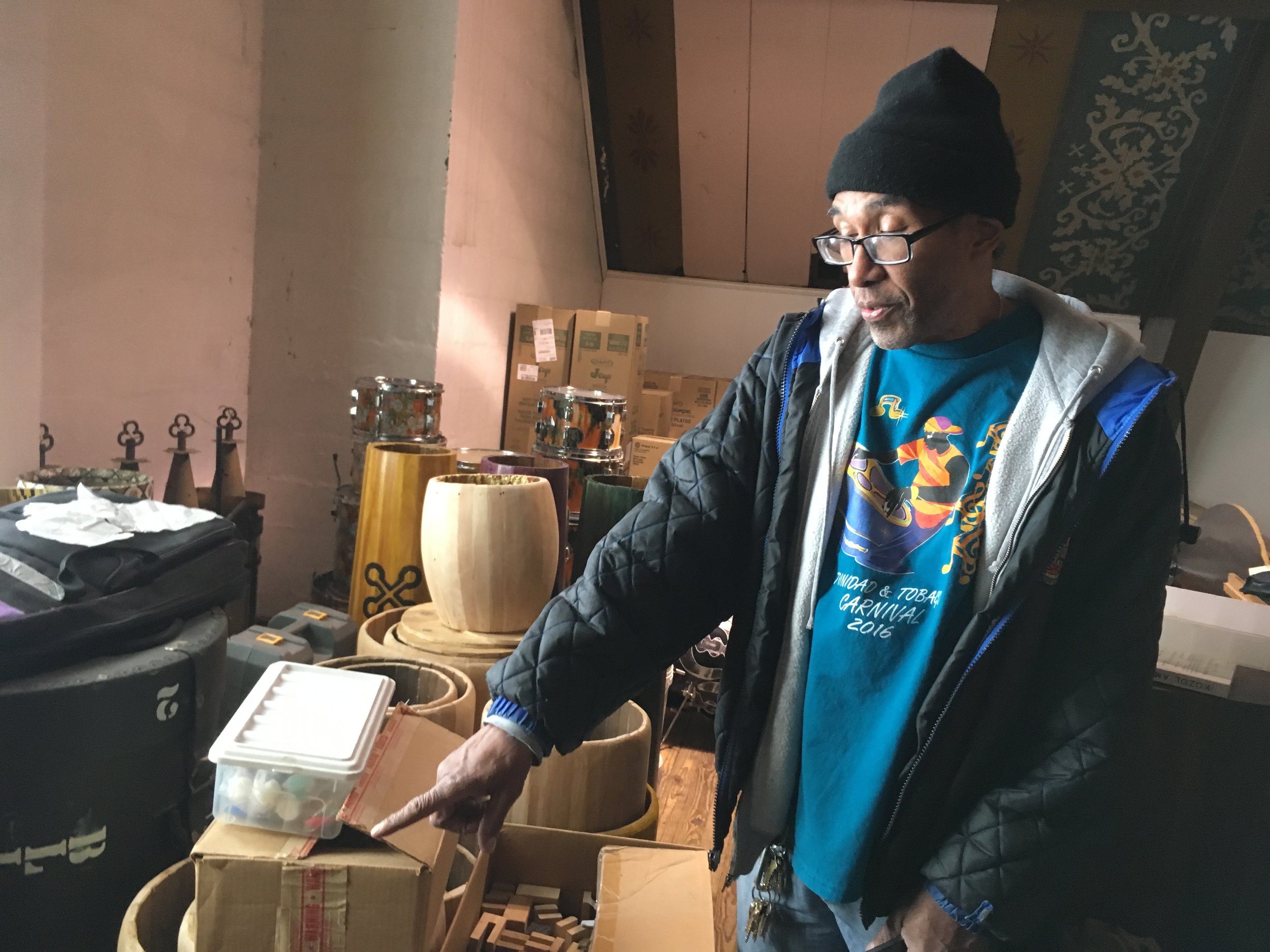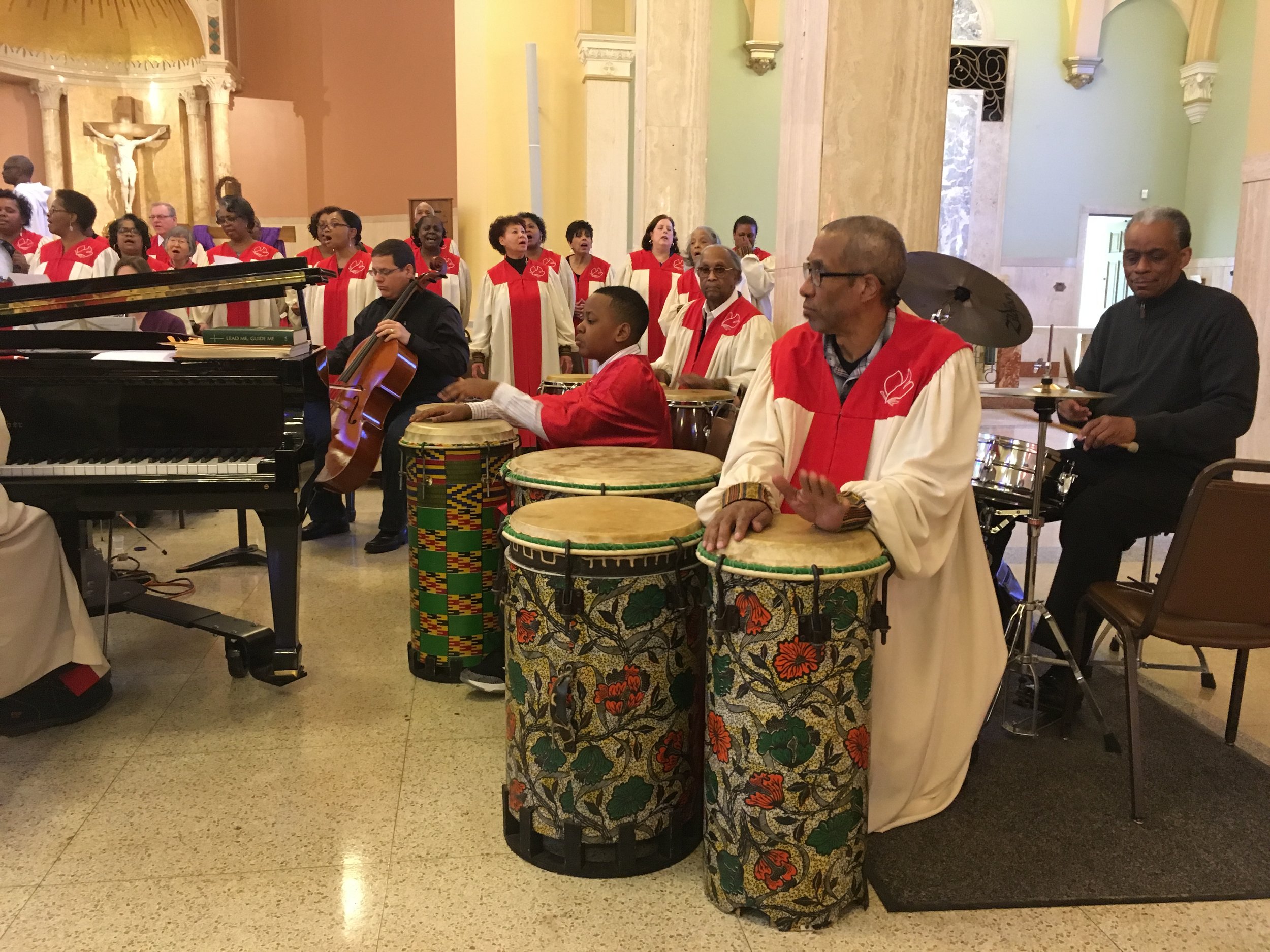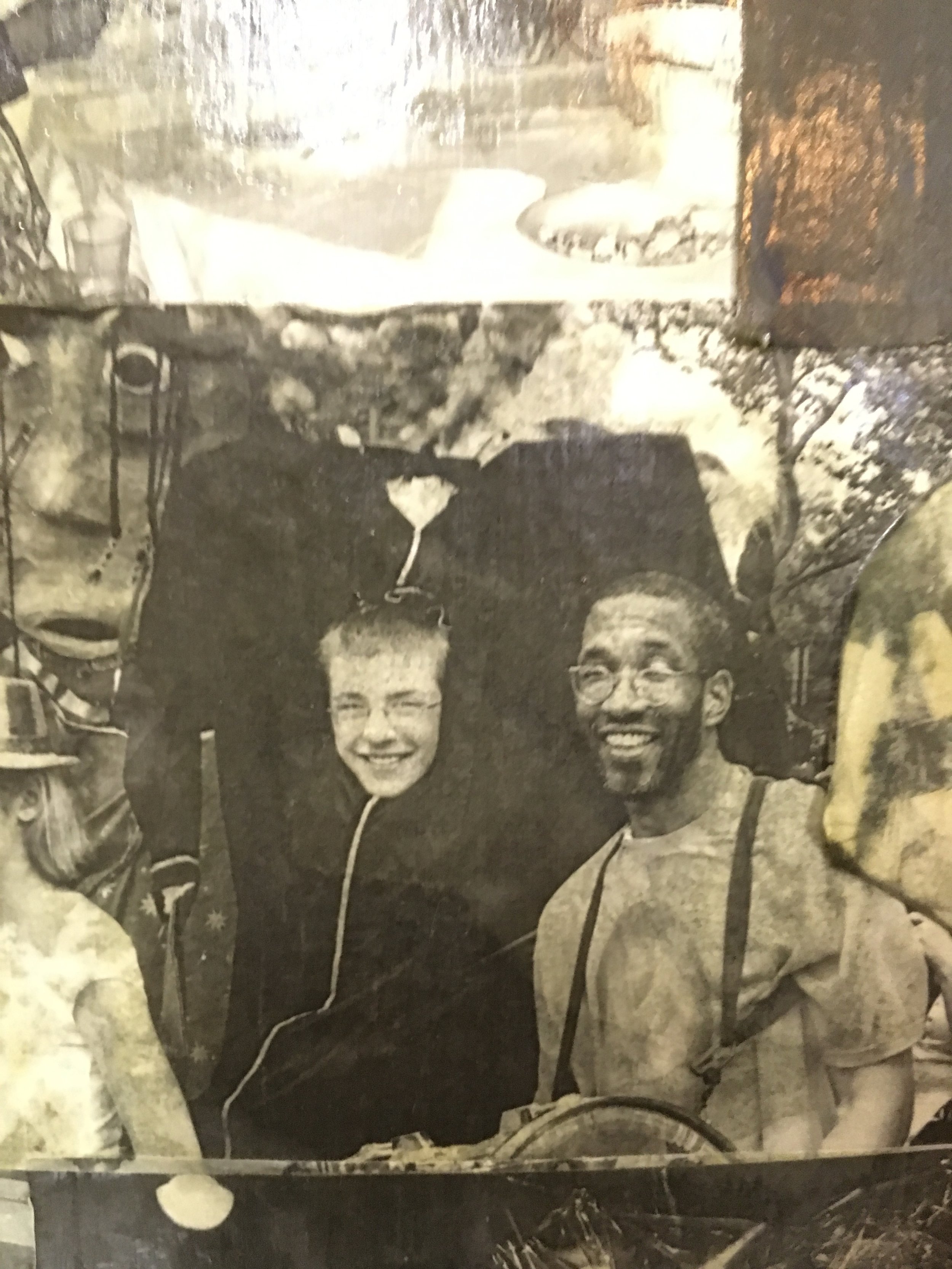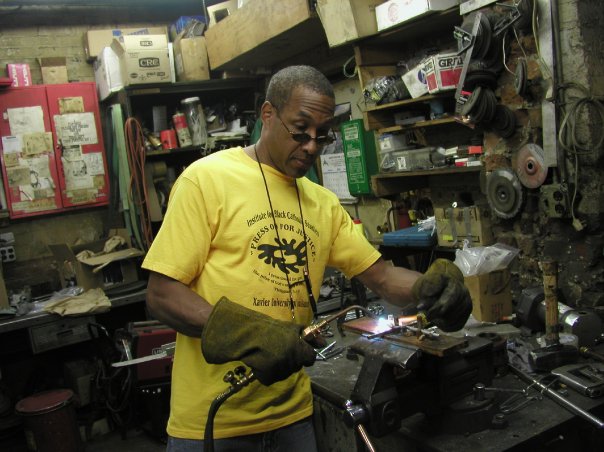Bernard Long grew up going to Epiphany Catholic Church, in Mount Pleasant.
All through his childhood, he attended services under the big, peaked arches of the church’s vaulted ceiling, sat in its creaky old pews, played in the playground as he watched the metal chimney twirling.
Like a lot of people, Bernard strayed in his 20s and 30s. He got a job in manufacturing, made good money. Who needed church? But in the 1990s, he came back. Looking for something more in life than just work and money.
At Epiphany, he found what he was looking for.
"We would have praise dancing, a lot of gospel," he says. "It was really an African American experience."
Drums were an important part of that experience. The church had invested in some really nice, African-style cylinder drums made by a company called Remo, and Bernard — being a musician — was one of the parishioners who played them during services.
One Sunday, while he was playing, he realized something.
"I looked at a Remo drum," he remembers, "and I said, 'Man, this is just cardboard. I got free cardboard, as much as I want, just free.'"
See, back then Bernard had a job running a web press at the old Model Box Company on E. 93rd and Woodland Avenue. Cutting out pizza boxes, cake boxes, any kind of box, from big spools of cardboard.
He took those huge spools -- picture giant versions of the cores inside rolls of paper towels -- and grabbed an electric saw. Cut the cardboard cores into drum-size segments.
He’d use some scrap wood to reinforce the insides, buy some drum skins for a few bucks from a music store, stretch and bolt those over the top. Decorate the outside with African fabric he bought from friends. Bernard made drum after drum like that, as many as 100 of them, he says.
The Church of Drums
That was in 1999 or 2000. For years afterward, Epiphany was filled with the sound of Bernard’s drums. After school, on weekdays. During evening meals. And of course, on Sundays, backing up services led by Father Daniel Begin and the church choir.
Thanks to Bernard - more people than ever before could join in.
"It’s just a joyful noise," he says of drumming and its relationship to spirituality. "Camaraderie and friendship and it’s just a positive you know."
By the mid 2000s, though, not even Bernard’s drums were enough to keep Epiphany open. Only about 1 in 20 African Americans are Catholic, and attendance at Epiphany had been dwindling for years. The Diocese made up its mind that the church needed to close. And it did, for good, in May 2009.
But Bernard and his drums never had to go anywhere.
After the church shut down, the building became the Thea Bowman Center, a social service agency that offers everything from summer camp for kids, to tax prep lessons, to exercise classes.
The Center needed a custodian, and Bernard — who was out of work by then because the Model Box Company had shut down — got the job.
Dozens of his drums still live in the church balcony here, and you’d never know they were made by a guy with an electric saw and some recycled cardboard spools. They look just like what you’d buy in a store, down to the beautifully decorated shells. Some show repeated geometric shapes - squares and dots and triangles in red and gold. Others are more abstract. Curved black lines against a yellow background, rainbow tie-die patterns.
After the church was sold, the Diocese decided to remove and sell off the church’s pews. Bernard managed to snag a few, and guess what he did with them?
"I just dismantled 'em and sliced 'em up and made drums out of 'em," he says.
Today, aside from his custodial duties, Bernard still offers drum lessons to kids during after-school programs. And he's turned the old altar area into a kind of music room — a piano, a couple guitars, speakers plastered with old photos — and, of course, drums.
You can visit him anytime. He keeps the side door to the church open all day, and if he’s not in the middle of a job he’s happy to chat with anyone who drops in.
Past and Present
Part of him is sad, of course, that the church closed down. He travels out to suburban Garfield Heights now to attend services. And while he loves his new parish, it’s not the same as being able to just walk down the street.
But he’s happy that the old Epiphany has a present as well as a past. The building is active seven days a week now, and in that way, "it's probably more church now than when it was church," he says.
In church, "at the end of the service you go live your life," he says. "But now people come in here and I watch them play in that large space, man. When you see that, that's pretty good."
Still, he says more could be done. Even more people could be invited in.
"I would like to see more things we could do with large groups of people," he says. "Not exactly church but it’s relative."
He could picture line dancing, town hall meetings.
"Really just to sit down and share some ideas and see what happens," he says. "Because things happen on an impulse and then you learn things as people bring forward their gifts."
Not unlike the gifts Bernard brought forward all those years ago - when, on impulse, he started making church drums at work.


